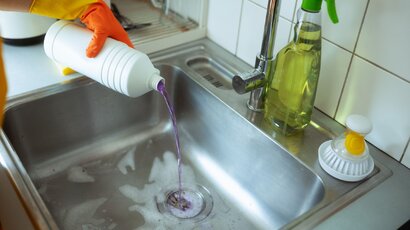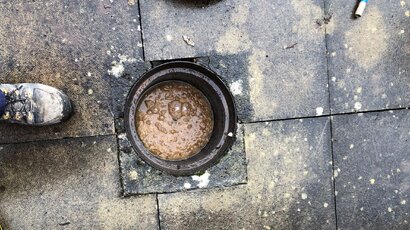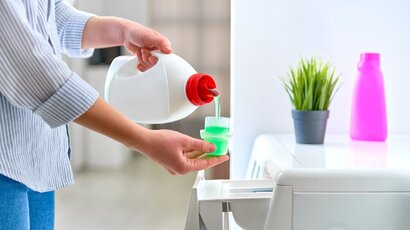Many homeowners brush off weak flushes as minor annoyances, but in many cases, they point to something more serious happening below the surface.
Poor toilet flushing often signals a blocked drain. While the issue might start with one slow toilet, it can quickly affect other fixtures and lead to costly repairs if ignored.
Drains are designed to move wastewater efficiently, but even small obstructions can throw off the balance, causing everything from strange noises to water backing up where it shouldn’t.
This guide breaks down how flushing works, what causes drainage issues, and what to do if your toilet starts acting up. Catching the problem early can make all the difference in keeping your plumbing healthy and your bathroom stress-free.
How Toilet Flushing Works
To understand why flushing problems happen, it helps to know how a toilet actually works.
When you press the flush button, water rushes from the cistern into the bowl. This surge pushes waste through the toilet trap and into the drainage system. From there, gravity and water flow carry everything away through underground pipes.
![]()
Flush strength relies heavily on water pressure and clear, unobstructed drains. If either of these is compromised, even slightly, the flush becomes weaker or inconsistent.
A small blockage or reduced water flow can disrupt the flushing cycle. Instead of everything disappearing cleanly, waste may linger in the bowl or drain more slowly than usual. That’s why even minor issues can signal something more serious building up in the pipes.
Common Signs Your Drain is Blocked
Flushing issues rarely happen in isolation. Here are the key signs a blocked drain could be behind it.
1. Slow or Incomplete Flushes
If your toilet isn’t clearing waste in one go, or the water swirls longer than usual, it’s often the first sign of a blockage.
2. Gurgling or Bubbling Noises
Strange sounds after flushing point to air trapped in the pipes, a classic sign that water flow is restricted.
3. Bad Smells in the Bathroom
If you notice a musty or unpleasant smell near your toilet or sink, there could be stagnant water or waste sitting in a blocked drain.
4. Unusual Water Levels
Water that rises too high before draining, or sits unusually low, usually indicates a problem with how waste is being moved along the pipe.
5. Other Fixtures Acting
When your toilet starts playing up, keep an eye on your shower or sink too. If more than one drain is slow, it often means the main line is blocked.
If you’re noticing any of these signs, it’s best not to ignore them early intervention can prevent serious plumbing issues.
How Blocked Drains Affect Toilet Performance
Toilets are designed to flush waste quickly and completely, but they rely on a clear drainage system to do the job. When a blockage forms, the flush can’t perform as intended.
![]()
Water Flow Disruption
A blocked drain slows or even stops water from moving freely. That reduced flow means waste may linger in the bowl or take multiple flushes to go down. In worse cases, it might not budge at all.
Loss of Flush Pressure
Blocked drains interrupt the vacuum-like effect needed for a powerful flush. The result? A sluggish, ineffective flush that leaves you wondering what went wrong.
Backflow and Delayed Draining
With nowhere to go, water can back up into the bowl or even cause wastewater to rise in nearby drains. You might flush the toilet and hear the kitchen sink gurgle, which is not ideal.
Hidden Blockages = Ongoing Problems
Not all blockages are easy to find. Deeper issues like tree roots or pipe misalignments can cause recurring symptoms that never fully go away until properly treated.
Some Melbourne homeowners report toilets bubbling every time they run their washing machine. That usually points to a shared pipe being partially blocked, causing water to push back up through the toilet instead of draining smoothly.
What Causes Toilet-Related Drain Blockages
A range of common issues can lead to toilet-related blockages. These include:
- Excessive or thick toilet paper use
- Flushing non-flushable items like sanitary products or wet wipes
- Tree roots enter underground pipes through small cracks
- Build-up of grease and soap scum from connected drains
- Structural damage in older or misaligned pipes
Sometimes, blockages are caused by well-meaning but bad habits. Don’t pour leftover paint water down the toilet. It may seem harmless, but paint residue sticks to pipe walls, hardens, and contributes to long-term blockages.
Understanding the cause can help prevent the issue from happening again or getting worse.
What to Do If Your Toilet Isn’t Flushing Properly
If your toilet’s not flushing the way it should, there are a few simple steps you can take before calling a plumber.
Start by checking the cistern. Make sure it’s filling correctly and releasing enough water when flushed. Low water levels can weaken the flush even when the drain is clear.
![]()
Next, check for visible blockages in the bowl or trap. A quick plunge might clear a minor clog near the surface. If not, a basic drain snake can help reach slightly deeper.
If the problem persists, it’s best to call a licensed plumber. Blockages further down the line can’t be fixed with DIY tools, and forcing more water down the toilet can make things worse.
Leaving flushing issues unchecked can lead to bigger problems, like pipe damage or wastewater backups. It’s always safer (and cheaper) to act early.
How Professionals Clear Blocked Drains
When DIY efforts don’t do the trick, a licensed plumber can diagnose and fix the problem using advanced tools.
A CCTV drain camera helps identify the exact location and cause of a blockage, without needing to dig. Once found, the plumber might use hydro-jetting, which blasts high-pressure water through the pipe to clear out debris, roots or hardened buildup.
In more severe cases, such as collapsed or broken pipes, excavation or full pipe replacement may be required. These situations are rare, but when they do happen, fast professional intervention can minimise damage and disruption.
Flush Away Toilet Trouble with Expert Help
A toilet that doesn’t flush properly might seem like a minor inconvenience, but it’s often a sign of something more serious happening in your drainage system. What starts as a slow flush or the occasional gurgle can quickly turn into backed-up pipes, water damage, or costly repairs if left unchecked.
Early action is the best way to avoid a plumbing disaster. Whether it’s a partial blockage caused by wet wipes or a deeper issue like tree roots in underground pipes, the longer you delay, the worse and more expensive the outcome can be.
If your toilet’s misbehaving, don’t guess or ignore the signs. Get a qualified professional to inspect the system and pinpoint the problem before it escalates.
For reliable help with toilet flushing issues or blocked drains in Melbourne, contact WP Plumbing. Their experienced team will diagnose the cause, clear the blockage, and get your toilet working properly again in no time.






